afterLoad (455.67KB) (9.52ms)
afterInitialise (1.27MB) (57.14ms)
afterRoute (856.63KB) (18.71ms)
beforeRenderComponent com_tags (20.52KB) (3.75ms)
afterRenderComponent com_tags (3.21MB) (344ms)
afterDispatch (27.03KB) (10.01ms)
beforeRenderRawModule mod_articles_category (READ MORE...) (372.12KB) (36.74ms)
Before Access::preloadComponents (all components) (56.7KB) (2.06ms)
After Access::preloadComponents (all components) (103.05KB) (6.01ms)
Before Access::getAssetRules (id:8 name:com_content) (840B) (24μs)
After Access::getAssetRules (id:8 name:com_content) (7.05KB) (57μs)
afterRenderRawModule mod_articles_category (READ MORE...) (5.08KB) (236ms)
beforeRenderRawModule mod_tags_popular (Search) (4.81KB) (29μs)
afterRenderRawModule mod_tags_popular (Search) (1.87KB) (64.49ms)
beforeRenderRawModule mod_custom (Remember to download Heart Healthy Seniors) (816B) (33μs)
afterRenderRawModule mod_custom (Remember to download Heart Healthy Seniors) (4.86KB) (262μs)
beforeRenderRawModule mod_custom (Get additionel and more detailed knowledge ) (752B) (14μs)
afterRenderRawModule mod_custom (Get additionel and more detailed knowledge ) (1.67KB) (28μs)
beforeRenderRawModule mod_custom (BOOST YOUR IMMUNE DEFENSE) (608B) (11μs)
afterRenderRawModule mod_custom (BOOST YOUR IMMUNE DEFENSE) (928B) (22μs)
beforeRenderRawModule mod_custom (Are you taking supplements) (736B) (9μs)
afterRenderRawModule mod_custom (Are you taking supplements) (1.03KB) (19μs)
beforeRenderRawModule mod_custom (Antiaging) (720B) (9μs)
afterRenderRawModule mod_custom (Antiaging) (1.02KB) (17μs)
beforeRenderRawModule mod_custom (Exercise) (720B) (9μs)
afterRenderRawModule mod_custom (Exercise) (1.02KB) (18μs)
beforeRenderRawModule mod_custom (Check this before you buy a Q10 product) (752B) (8μs)
afterRenderRawModule mod_custom (Check this before you buy a Q10 product) (944B) (18μs)
beforeRenderRawModule mod_custom (Chronic fatigue tied Alan to his bed but Q10 capsules saved him:) (245.53KB) (5.14ms)
afterRenderRawModule mod_custom (Chronic fatigue tied Alan to his bed but Q10 capsules saved him:) (960B) (46μs)
beforeRenderModule mod_custom (Chronic fatigue tied Alan to his bed but Q10 capsules saved him:) (768B) (5μs)
afterRenderModule mod_custom (Chronic fatigue tied Alan to his bed but Q10 capsules saved him:) (1.3KB) (58μs)
beforeRenderRawModule mod_custom (Cholesterol-lowering without side effects:) (368B) (12μs)
afterRenderRawModule mod_custom (Cholesterol-lowering without side effects:) (2.19KB) (434μs)
beforeRenderModule mod_custom (Cholesterol-lowering without side effects:) (752B) (5μs)
afterRenderModule mod_custom (Cholesterol-lowering without side effects:) (1.28KB) (47μs)
beforeRenderModule mod_articles_category (READ MORE...) (21.32KB) (372μs)
afterRenderModule mod_articles_category (READ MORE...) (1.25KB) (41μs)
beforeRenderModule mod_tags_popular (Search) (5.17KB) (15μs)
afterRenderModule mod_tags_popular (Search) (1.27KB) (25μs)
beforeRenderModule mod_custom (Remember to download Heart Healthy Seniors) (1.17KB) (11μs)
afterRenderModule mod_custom (Remember to download Heart Healthy Seniors) (1.3KB) (23μs)
beforeRenderModule mod_custom (Get additionel and more detailed knowledge ) (368B) (9μs)
afterRenderModule mod_custom (Get additionel and more detailed knowledge ) (1.3KB) (21μs)
beforeRenderModule mod_custom (BOOST YOUR IMMUNE DEFENSE) (224B) (9μs)
afterRenderModule mod_custom (BOOST YOUR IMMUNE DEFENSE) (1.28KB) (29μs)
beforeRenderModule mod_custom (Are you taking supplements) (352B) (9μs)
afterRenderModule mod_custom (Are you taking supplements) (1.28KB) (22μs)
beforeRenderModule mod_custom (Antiaging) (336B) (9μs)
afterRenderModule mod_custom (Antiaging) (1.27KB) (20μs)
beforeRenderModule mod_custom (Exercise) (336B) (2.6ms)
afterRenderModule mod_custom (Exercise) (1.25KB) (56μs)
beforeRenderModule mod_custom (Check this before you buy a Q10 product) (352B) (12μs)
afterRenderModule mod_custom (Check this before you buy a Q10 product) (1.28KB) (26μs)
beforeRenderRawModule mod_menu (Main menu-US) (20.94KB) (1.85ms)
afterRenderRawModule mod_menu (Main menu-US) (152.66KB) (2.3ms)
beforeRenderModule mod_menu (Main menu-US) (720B) (5μs)
afterRenderModule mod_menu (Main menu-US) (4.36KB) (62μs)
beforeRenderRawModule mod_languages (Sprogskift) (3.44KB) (1.04ms)
afterRenderRawModule mod_languages (Sprogskift) (26.9KB) (3.68ms)
beforeRenderModule mod_languages (Sprogskift) (720B) (6μs)
afterRenderModule mod_languages (Sprogskift) (5.31KB) (22μs)
beforeRenderRawModule mod_finder () (6.34KB) (10μs)
afterRenderRawModule mod_finder () (214.16KB) (10.84ms)
beforeRenderModule mod_finder () (704B) (5μs)
afterRenderModule mod_finder () (5.79KB) (34μs)
beforeRenderRawModule mod_custom () (6.62KB) (137μs)
afterRenderRawModule mod_custom () (22.61KB) (5.43ms)
beforeRenderModule mod_custom () (704B) (5μs)
afterRenderModule mod_custom () (1.23KB) (49μs)
beforeRenderRawModule mod_menu (Main menu-US) (5.07KB) (103μs)
afterRenderRawModule mod_menu (Main menu-US) (5.8KB) (3.67ms)
beforeRenderModule mod_menu (Main menu-US) (720B) (7μs)
afterRenderModule mod_menu (Main menu-US) (1.25KB) (56μs)
beforeRenderRawModule mod_languages (Sprogskift Mobil) (912B) (19μs)
afterRenderRawModule mod_languages (Sprogskift Mobil) (3.89KB) (660μs)
beforeRenderModule mod_languages (Sprogskift Mobil) (720B) (3μs)
afterRenderModule mod_languages (Sprogskift Mobil) (1.27KB) (29μs)
beforeRenderRawModule mod_finder () (2.3KB) (9μs)
afterRenderRawModule mod_finder () (6.29KB) (4.42ms)
beforeRenderModule mod_finder () (704B) (40μs)
afterRenderModule mod_finder () (1.23KB) (69μs)
beforeRenderRawModule mod_custom () (8.66KB) (182μs)
afterRenderRawModule mod_custom () (904B) (144μs)
beforeRenderModule mod_custom () (704B) (3μs)
afterRenderModule mod_custom () (2.43KB) (25μs)
beforeRenderRawModule mod_custom () (688B) (80μs)
afterRenderRawModule mod_custom () (896B) (94μs)
beforeRenderModule mod_custom () (704B) (2μs)
afterRenderModule mod_custom () (2.71KB) (22μs)
afterRender (544.21KB) (34.36ms)
| 1 x afterRenderComponent com_tags (3.21MB) (39.48%) | 344.23ms |
| 1 x afterRenderRawModule mod_articles_category (READ MORE...) (5.08KB) (27.09%) | 236.25ms |
| 1 x afterRenderRawModule mod_tags_popular (Search) (1.87KB) (7.4%) | 64.49ms |
| 1 x afterInitialise (1.27MB) (6.55%) | 57.14ms |
| 1 x beforeRenderRawModule mod_articles_category (READ MORE...) (372.12KB) (4.21%) | 36.74ms |
| 1 x afterRender (544.21KB) (3.94%) | 34.36ms |
| 1 x afterRoute (856.63KB) (2.15%) | 18.71ms |
| 1 x afterRenderRawModule mod_finder () (214.16KB) (1.24%) | 10.84ms |
| 1 x afterDispatch (27.03KB) (1.15%) | 10.01ms |
| 1 x afterLoad (455.67KB) (1.09%) | 9.52ms |
| 1 x After Access::preloadComponents (all components) (103.05KB) (0.69%) | 6.01ms |
| 1 x afterRenderRawModule mod_custom () (22.61KB) (0.62%) | 5.43ms |
| 1 x beforeRenderRawModule mod_custom (Chronic fatigue tied Alan to his bed but Q10 capsules saved him:) (245.53KB) (0.59%) | 5.14ms |
| 1 x afterRenderRawModule mod_finder () (6.29KB) (0.51%) | 4.42ms |
| 1 x beforeRenderComponent com_tags (20.52KB) (0.43%) | 3.75ms |
| 1 x afterRenderRawModule mod_languages (Sprogskift) (26.9KB) (0.42%) | 3.68ms |
| 1 x afterRenderRawModule mod_menu (Main menu-US) (5.8KB) (0.42%) | 3.67ms |
| 1 x beforeRenderModule mod_custom (Exercise) (336B) (0.3%) | 2.60ms |
| 1 x afterRenderRawModule mod_menu (Main menu-US) (152.66KB) (0.26%) | 2.30ms |
| 1 x Before Access::preloadComponents (all components) (56.7KB) (0.24%) | 2.06ms |
| 1 x beforeRenderRawModule mod_menu (Main menu-US) (20.94KB) (0.21%) | 1.85ms |
| 1 x beforeRenderRawModule mod_languages (Sprogskift) (3.44KB) (0.12%) | 1.04ms |
| 1 x afterRenderRawModule mod_languages (Sprogskift Mobil) (3.89KB) (0.08%) | 660μs |
| 1 x afterRenderRawModule mod_custom (Cholesterol-lowering without side effects:) (2.19KB) (0.05%) | 434μs |
| 1 x beforeRenderModule mod_articles_category (READ MORE...) (21.32KB) (0.04%) | 372μs |
| 1 x afterRenderRawModule mod_custom (Remember to download Heart Healthy Seniors) (4.86KB) (0.03%) | 262μs |
| 1 x beforeRenderRawModule mod_custom () (8.66KB) (0.02%) | 182μs |
| 1 x afterRenderRawModule mod_custom () (904B) (0.02%) | 144μs |
| 1 x beforeRenderRawModule mod_custom () (6.62KB) (0.02%) | 137μs |
| 1 x beforeRenderRawModule mod_menu (Main menu-US) (5.07KB) (0.01%) | 103μs |
| 1 x afterRenderRawModule mod_custom () (896B) (0.01%) | 94μs |
| 1 x beforeRenderRawModule mod_custom () (688B) (0.01%) | 80μs |
| 1 x afterRenderModule mod_finder () (1.23KB) (0.01%) | 69μs |
| 1 x afterRenderModule mod_menu (Main menu-US) (4.36KB) (0.01%) | 62μs |
| 1 x afterRenderModule mod_custom (Chronic fatigue tied Alan to his bed but Q10 capsules saved him:) (1.3KB) (0.01%) | 58μs |
| 1 x After Access::getAssetRules (id:8 name:com_content) (7.05KB) (0.01%) | 57μs |
| 1 x afterRenderModule mod_custom (Exercise) (1.25KB) (0.01%) | 56μs |
| 1 x afterRenderModule mod_menu (Main menu-US) (1.25KB) (0.01%) | 56μs |
| 1 x afterRenderModule mod_custom () (1.23KB) (0.01%) | 49μs |
| 1 x afterRenderModule mod_custom (Cholesterol-lowering without side effects:) (1.28KB) (0.01%) | 47μs |
| 1 x afterRenderRawModule mod_custom (Chronic fatigue tied Alan to his bed but Q10 capsules saved him:) (960B) (0.01%) | 46μs |
| 2 x beforeRenderModule mod_finder () (704B) (0.01%) | 45μs |
| 1 x afterRenderModule mod_articles_category (READ MORE...) (1.25KB) (0%) | 41μs |
| 1 x afterRenderModule mod_finder () (5.79KB) (0%) | 34μs |
| 1 x beforeRenderRawModule mod_custom (Remember to download Heart Healthy Seniors) (816B) (0%) | 33μs |
| 1 x beforeRenderRawModule mod_tags_popular (Search) (4.81KB) (0%) | 29μs |
| 1 x afterRenderModule mod_custom (BOOST YOUR IMMUNE DEFENSE) (1.28KB) (0%) | 29μs |
| 1 x afterRenderModule mod_languages (Sprogskift Mobil) (1.27KB) (0%) | 29μs |
| 1 x afterRenderRawModule mod_custom (Get additionel and more detailed knowledge ) (1.67KB) (0%) | 28μs |
| 1 x afterRenderModule mod_custom (Check this before you buy a Q10 product) (1.28KB) (0%) | 26μs |
| 1 x afterRenderModule mod_tags_popular (Search) (1.27KB) (0%) | 25μs |
| 1 x afterRenderModule mod_custom () (2.43KB) (0%) | 25μs |
| 1 x Before Access::getAssetRules (id:8 name:com_content) (840B) (0%) | 24μs |
| 1 x afterRenderModule mod_custom (Remember to download Heart Healthy Seniors) (1.3KB) (0%) | 23μs |
| 1 x afterRenderModule mod_custom (Are you taking supplements) (1.28KB) (0%) | 22μs |
| 1 x afterRenderRawModule mod_custom (BOOST YOUR IMMUNE DEFENSE) (928B) (0%) | 22μs |
| 1 x afterRenderModule mod_languages (Sprogskift) (5.31KB) (0%) | 22μs |
| 1 x afterRenderModule mod_custom () (2.71KB) (0%) | 22μs |
| 1 x afterRenderModule mod_custom (Get additionel and more detailed knowledge ) (1.3KB) (0%) | 21μs |
| 1 x afterRenderModule mod_custom (Antiaging) (1.27KB) (0%) | 20μs |
| 1 x afterRenderRawModule mod_custom (Are you taking supplements) (1.03KB) (0%) | 19μs |
| 1 x beforeRenderRawModule mod_languages (Sprogskift Mobil) (912B) (0%) | 19μs |
| 1 x afterRenderRawModule mod_custom (Exercise) (1.02KB) (0%) | 18μs |
| 1 x afterRenderRawModule mod_custom (Check this before you buy a Q10 product) (944B) (0%) | 18μs |
| 1 x afterRenderRawModule mod_custom (Antiaging) (1.02KB) (0%) | 17μs |
| 1 x beforeRenderModule mod_tags_popular (Search) (5.17KB) (0%) | 15μs |
| 1 x beforeRenderRawModule mod_custom (Get additionel and more detailed knowledge ) (752B) (0%) | 14μs |
| 1 x beforeRenderModule mod_custom (Check this before you buy a Q10 product) (352B) (0%) | 12μs |
| 1 x beforeRenderRawModule mod_custom (Cholesterol-lowering without side effects:) (368B) (0%) | 12μs |
| 2 x beforeRenderModule mod_menu (Main menu-US) (720B) (0%) | 12μs |
| 1 x beforeRenderRawModule mod_custom (BOOST YOUR IMMUNE DEFENSE) (608B) (0%) | 11μs |
| 1 x beforeRenderModule mod_custom (Remember to download Heart Healthy Seniors) (1.17KB) (0%) | 11μs |
| 1 x beforeRenderRawModule mod_finder () (6.34KB) (0%) | 10μs |
| 3 x beforeRenderModule mod_custom () (704B) (0%) | 10μs |
| 1 x beforeRenderRawModule mod_custom (Are you taking supplements) (736B) (0%) | 9μs |
| 1 x beforeRenderModule mod_custom (Get additionel and more detailed knowledge ) (368B) (0%) | 9μs |
| 1 x beforeRenderModule mod_custom (BOOST YOUR IMMUNE DEFENSE) (224B) (0%) | 9μs |
| 1 x beforeRenderRawModule mod_finder () (2.3KB) (0%) | 9μs |
| 1 x beforeRenderRawModule mod_custom (Antiaging) (720B) (0%) | 9μs |
| 1 x beforeRenderRawModule mod_custom (Exercise) (720B) (0%) | 9μs |
| 1 x beforeRenderModule mod_custom (Are you taking supplements) (352B) (0%) | 9μs |
| 1 x beforeRenderModule mod_custom (Antiaging) (336B) (0%) | 9μs |
| 1 x beforeRenderRawModule mod_custom (Check this before you buy a Q10 product) (752B) (0%) | 8μs |
| 1 x beforeRenderModule mod_languages (Sprogskift) (720B) (0%) | 6μs |
| 1 x beforeRenderModule mod_custom (Chronic fatigue tied Alan to his bed but Q10 capsules saved him:) (768B) (0%) | 5μs |
| 1 x beforeRenderModule mod_custom (Cholesterol-lowering without side effects:) (752B) (0%) | 5μs |
| 1 x beforeRenderModule mod_languages (Sprogskift Mobil) (720B) (0%) | 3μs |
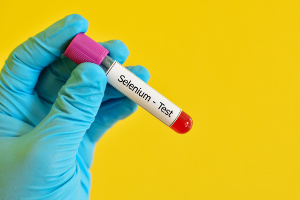 Cholesterol is an essential compound with many different functions. However, it can also turn into a potentially dangerous substance if it oxidizes and is embedded in the blood vessel walls. This oxidative process is what eventually leads to atherosclerosis. The trace element selenium protects against atherosclerosis because of its antioxidant properties and because of other mechanisms, according to a review article published in Biomedicine. This is highly relevant in our part of the world where cardiovascular disease is the leading cause of death, and where selenium deficiency is so widespread.
Cholesterol is an essential compound with many different functions. However, it can also turn into a potentially dangerous substance if it oxidizes and is embedded in the blood vessel walls. This oxidative process is what eventually leads to atherosclerosis. The trace element selenium protects against atherosclerosis because of its antioxidant properties and because of other mechanisms, according to a review article published in Biomedicine. This is highly relevant in our part of the world where cardiovascular disease is the leading cause of death, and where selenium deficiency is so widespread.








 Around one in six pregnancies results in spontaneous abortion. Although there can be different reasons for this, scientists have found that eating a healthy diet with lots of vegetables, fruit, fish, shellfish, eggs, and grains can lower the risk by over 50 percent. This was shown in a meta-analysis from the University of Birmingham in England. Earlier research shows that selenium, a trace element that many people are deficient in, plays a particularly important role.
Around one in six pregnancies results in spontaneous abortion. Although there can be different reasons for this, scientists have found that eating a healthy diet with lots of vegetables, fruit, fish, shellfish, eggs, and grains can lower the risk by over 50 percent. This was shown in a meta-analysis from the University of Birmingham in England. Earlier research shows that selenium, a trace element that many people are deficient in, plays a particularly important role. According to Bruce Ames, an American biochemist, ageing processes are largely due to lack of nutrients. One important contributing factor is the fact that our uptake and utilization of vitamins and minerals decrease with age. In addition, a lot of different types of medicine block our ability to utilize different nutrients. As a result of this, many of our enzyme processes slow down, making our cells increasingly vulnerable and that increases our risk of disease. Nonetheless, there is a lot we can do to optimize our intake and utilization of nutrients, particularly with respect to vitamin B12, vitamin D, calcium, iron, selenium, and zinc. It is also worth taking a look at Q10 for energy turnover and melatonin for healthy sleep. Our endogenous synthesis of both compounds decreases with age.
According to Bruce Ames, an American biochemist, ageing processes are largely due to lack of nutrients. One important contributing factor is the fact that our uptake and utilization of vitamins and minerals decrease with age. In addition, a lot of different types of medicine block our ability to utilize different nutrients. As a result of this, many of our enzyme processes slow down, making our cells increasingly vulnerable and that increases our risk of disease. Nonetheless, there is a lot we can do to optimize our intake and utilization of nutrients, particularly with respect to vitamin B12, vitamin D, calcium, iron, selenium, and zinc. It is also worth taking a look at Q10 for energy turnover and melatonin for healthy sleep. Our endogenous synthesis of both compounds decreases with age. Veganism is on the rise, and experts have different views on whether or not plant-diets are suited for children. A team of Polish scientists has now discovered that children on vegan diets have low stature and lower bone density than children who eat meat and dairy products. Children on vegan diets also are also more likely to lack amino acids, vitamin B12, vitamin D, vitamin A, iron, selenium, iodine, and the omega-3 fatty acid DHA (docosahexaenoic acid). It is particularly important for growing children to get enough nutrients to support their muscles, bones, brain, and a variety of enzyme processes. Also, children on vegan diets should be given relevant supplements to compensate for their shortcomings.
Veganism is on the rise, and experts have different views on whether or not plant-diets are suited for children. A team of Polish scientists has now discovered that children on vegan diets have low stature and lower bone density than children who eat meat and dairy products. Children on vegan diets also are also more likely to lack amino acids, vitamin B12, vitamin D, vitamin A, iron, selenium, iodine, and the omega-3 fatty acid DHA (docosahexaenoic acid). It is particularly important for growing children to get enough nutrients to support their muscles, bones, brain, and a variety of enzyme processes. Also, children on vegan diets should be given relevant supplements to compensate for their shortcomings.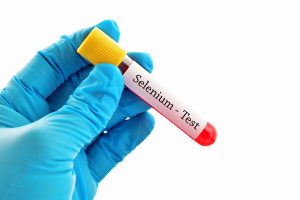 It is estimated that one billion people worldwide lack selenium. This has fatal consequences for public health because it increases the risk of virus infections, thyroid disorders, cardiovascular diseases, cancer, neurological disorders, and involuntary infertility. Adding to that problem is the fact that mercury, a known environmental toxin, throws a wrench into selenium’s different functions. In the following, we have compiled a long list of studies that look closer at the consequences of selenium deficiency and the advantage of optimizing the body’s selenium status with help from supplements.
It is estimated that one billion people worldwide lack selenium. This has fatal consequences for public health because it increases the risk of virus infections, thyroid disorders, cardiovascular diseases, cancer, neurological disorders, and involuntary infertility. Adding to that problem is the fact that mercury, a known environmental toxin, throws a wrench into selenium’s different functions. In the following, we have compiled a long list of studies that look closer at the consequences of selenium deficiency and the advantage of optimizing the body’s selenium status with help from supplements.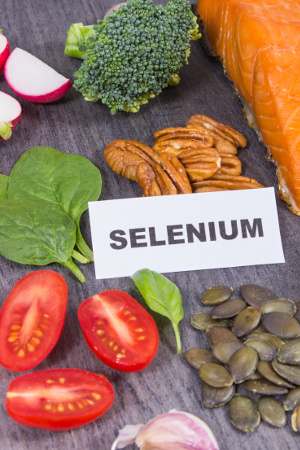
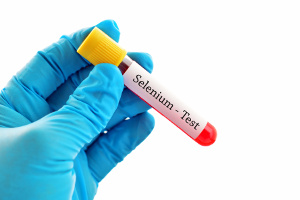
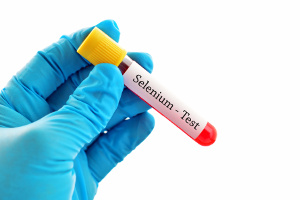
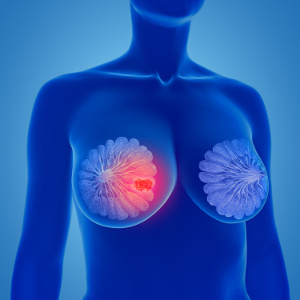 Breast cancer is the leading cancer form among women. Even though treatments have gotten a lot better the disease still has a high death toll. A Swedish-German study shows that having low levels of selenium in the blood worsens the prognosis, whereas having a higher selenium content in the blood can increase the odds of surviving breast cancer. Unfortunately, selenium deficiency is rather common in Europe. According to the scientists behind the new study, measurements of selenium status can be used to optimize blood levels of the nutrient, thereby improving treatment correspondingly.
Breast cancer is the leading cancer form among women. Even though treatments have gotten a lot better the disease still has a high death toll. A Swedish-German study shows that having low levels of selenium in the blood worsens the prognosis, whereas having a higher selenium content in the blood can increase the odds of surviving breast cancer. Unfortunately, selenium deficiency is rather common in Europe. According to the scientists behind the new study, measurements of selenium status can be used to optimize blood levels of the nutrient, thereby improving treatment correspondingly. Having higher blood levels of selenium, an essential trace element, increases a breast cancer patient’s chances of 10-year survival, according to a Polish population study that is published in the science journal Nutrients. Also, earlier research has shown that supplementation with selenium yeast can lower the risk of contracting a variety of different cancer forms. The agricultural soil in Europe is very low in selenium and that is one of the reasons why selenium deficiencies are so common. The question is how much selenium we need to optimize levels in the blood.
Having higher blood levels of selenium, an essential trace element, increases a breast cancer patient’s chances of 10-year survival, according to a Polish population study that is published in the science journal Nutrients. Also, earlier research has shown that supplementation with selenium yeast can lower the risk of contracting a variety of different cancer forms. The agricultural soil in Europe is very low in selenium and that is one of the reasons why selenium deficiencies are so common. The question is how much selenium we need to optimize levels in the blood. Yes, according to a new study published in Free Radical Biology & Medicine, lack of selenium lowers the kidneys’ sodium excretion via different mechanisms, and that leads to elevated blood pressure. The study results are highly relevant because hypertension and subsequent premature death is a growing global problem. Selenium deficiency is also a widespread problem. One billion people worldwide are believed to be lack this essential nutrient, primarily because of the selenium-depleted agricultural soil in large parts of China, Europe, and other places.
Yes, according to a new study published in Free Radical Biology & Medicine, lack of selenium lowers the kidneys’ sodium excretion via different mechanisms, and that leads to elevated blood pressure. The study results are highly relevant because hypertension and subsequent premature death is a growing global problem. Selenium deficiency is also a widespread problem. One billion people worldwide are believed to be lack this essential nutrient, primarily because of the selenium-depleted agricultural soil in large parts of China, Europe, and other places.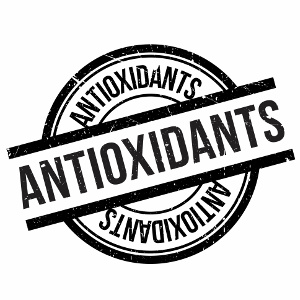 Everyone is affected by electromagnetic radiation from cell phones, device screens, the electricity supply and other electric systems. The brain’s neurons are particularly vulnerable, especially because electromagnetic radiation can increase the neuronal uptake of calcium ions, which makes the neurons overactive and may even cause them to perish. A study published in News Medical Life Sciences shows that too much calcium in the brain increases the risk of Alzheimer’s disease and digital dementia in young individuals. The increased electromagnetic radiation also generates loads of free radicals in the body that can cause oxidative stress and cellular damage because it outperforms the body’s different antioxidants. This was described in an article published in The Journal of Microscopy & Ultrastructure that also mentions how electromagnetic radiation can cause stress, headaches, fatigue, anxiety, and other symptoms.
Everyone is affected by electromagnetic radiation from cell phones, device screens, the electricity supply and other electric systems. The brain’s neurons are particularly vulnerable, especially because electromagnetic radiation can increase the neuronal uptake of calcium ions, which makes the neurons overactive and may even cause them to perish. A study published in News Medical Life Sciences shows that too much calcium in the brain increases the risk of Alzheimer’s disease and digital dementia in young individuals. The increased electromagnetic radiation also generates loads of free radicals in the body that can cause oxidative stress and cellular damage because it outperforms the body’s different antioxidants. This was described in an article published in The Journal of Microscopy & Ultrastructure that also mentions how electromagnetic radiation can cause stress, headaches, fatigue, anxiety, and other symptoms.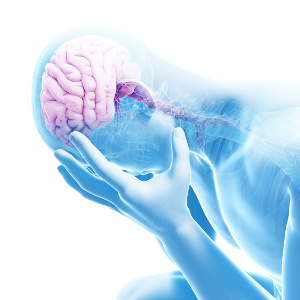 There is a link between depression, dementia and Alzheimer’s disease. Also, it appears that chronic stress contributes to oxidative stress and brain cell damage. In a review article that is published in the science journal Antioxidants, researchers look closer at how oxidative stress affects the brain. They also study how antioxidants can be included in the prevention and treatment of Alzheimer’s disease, and why the most promising results are seen with selenium, Q10, melatonin, vitamin E, turmeric, and polyphenols. With regard to depression, selenium, zinc, vitamin E, turmeric, and saffron have demonstrated the greatest potential.
There is a link between depression, dementia and Alzheimer’s disease. Also, it appears that chronic stress contributes to oxidative stress and brain cell damage. In a review article that is published in the science journal Antioxidants, researchers look closer at how oxidative stress affects the brain. They also study how antioxidants can be included in the prevention and treatment of Alzheimer’s disease, and why the most promising results are seen with selenium, Q10, melatonin, vitamin E, turmeric, and polyphenols. With regard to depression, selenium, zinc, vitamin E, turmeric, and saffron have demonstrated the greatest potential.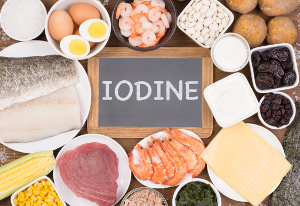 The Russian invasion of Ukraine has increased the fear of nuclear warfare or radioactive leaks from local nuclear power plants. For that reason, many people have purchased iodine tablets to protect themselves from radioactive contamination. Being relatively close to a radioactive leak creates a sudden need for very large intake of iodine. It is important to realize, however, that the thyroid gland can only store iodine for a limited period of time and it can be dangerous to take extreme doses of iodine. Therefore, it makes no sense to take mega-doses as a preventive measure. On the other hand, it looks as if iodine deficiencies are rather common. Furthermore, we do need a certain amount of iodine to support the thyroid function, estrogen balance, and a number of other things. The question is how much iodine do we need on a day-to-day basis and how much do we need in the case of being exposed to radioactive radiation?
The Russian invasion of Ukraine has increased the fear of nuclear warfare or radioactive leaks from local nuclear power plants. For that reason, many people have purchased iodine tablets to protect themselves from radioactive contamination. Being relatively close to a radioactive leak creates a sudden need for very large intake of iodine. It is important to realize, however, that the thyroid gland can only store iodine for a limited period of time and it can be dangerous to take extreme doses of iodine. Therefore, it makes no sense to take mega-doses as a preventive measure. On the other hand, it looks as if iodine deficiencies are rather common. Furthermore, we do need a certain amount of iodine to support the thyroid function, estrogen balance, and a number of other things. The question is how much iodine do we need on a day-to-day basis and how much do we need in the case of being exposed to radioactive radiation?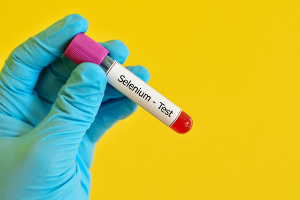
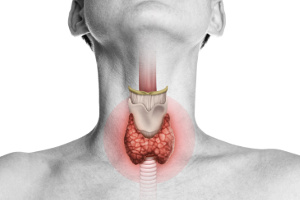
 The need for the trace element selenium is increased in pregnant and breastfeeding women because it supports a host of different proteins that are particularly important for tissue growth. Also, selenium supports different antioxidants that protect the unborn baby’s organs and tissues. A new review article published in Nutrients shows that lack of selenium during pregnancy may result in oxidative stress, stunted growth, and low birth weight. This may eventually have consequences for the baby’s development, cognitive skills, and health in general. The authors also mention that an expecting mother’s alcohol abuse may have a more negative health impact if she is selenium-deficient. It is a problem that selenium deficiency is such a widespread problem in Europe and other parts of the world.
The need for the trace element selenium is increased in pregnant and breastfeeding women because it supports a host of different proteins that are particularly important for tissue growth. Also, selenium supports different antioxidants that protect the unborn baby’s organs and tissues. A new review article published in Nutrients shows that lack of selenium during pregnancy may result in oxidative stress, stunted growth, and low birth weight. This may eventually have consequences for the baby’s development, cognitive skills, and health in general. The authors also mention that an expecting mother’s alcohol abuse may have a more negative health impact if she is selenium-deficient. It is a problem that selenium deficiency is such a widespread problem in Europe and other parts of the world.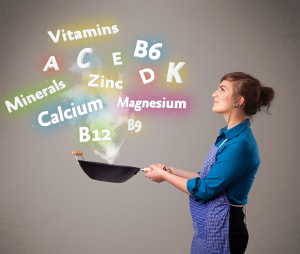 In ancient times when our ancestors hunted, they consumed every inch of the animal – from one end to another. Organ meat such as the liver, the heart, and the kidneys were delicacies that contained far more essential nutrients than other parts of the animal. In Western countries, we primarily consume muscle meat. In addition, animals often get unnatural fodder with suboptimal nutrient content. This results in deficiencies and an imbalance between amino acids and fatty acids. In the following article, you can read more about organ meats (also known as offal), bone marrow, and bone broth and their high content of essential amino acids, vitamin B12, iron, selenium, Q10, calcium, magnesium, collagen, glucosamine, CLA, and other vital nutrients. Also, you can read more about why it makes sense to choose meat from free-range livestock.
In ancient times when our ancestors hunted, they consumed every inch of the animal – from one end to another. Organ meat such as the liver, the heart, and the kidneys were delicacies that contained far more essential nutrients than other parts of the animal. In Western countries, we primarily consume muscle meat. In addition, animals often get unnatural fodder with suboptimal nutrient content. This results in deficiencies and an imbalance between amino acids and fatty acids. In the following article, you can read more about organ meats (also known as offal), bone marrow, and bone broth and their high content of essential amino acids, vitamin B12, iron, selenium, Q10, calcium, magnesium, collagen, glucosamine, CLA, and other vital nutrients. Also, you can read more about why it makes sense to choose meat from free-range livestock.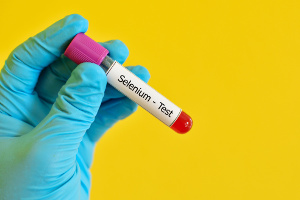
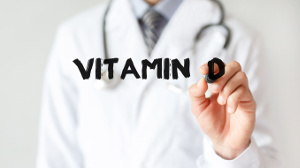 HIV, the virus that causes AIDS, is potentially life-threatening because it attacks central cells in the immune defense. It has also been documented that HIV patients have an increased risk of lacking vitamin D. This can be because of the disease itself, the combination therapy, lack of sun exposure, or other factors. Vitamin D is important for the immune defense, the bones, our mood, and numerous other functions. According to a new article published in MedicalNews Today, it is important to measure HIV patients’ blood levels of vitamin D and possibly give them high-dosed supplements to optimize levels of the nutrient. Earlier studies point to a link between the course of an HIV infections and the body’s selenium status.
HIV, the virus that causes AIDS, is potentially life-threatening because it attacks central cells in the immune defense. It has also been documented that HIV patients have an increased risk of lacking vitamin D. This can be because of the disease itself, the combination therapy, lack of sun exposure, or other factors. Vitamin D is important for the immune defense, the bones, our mood, and numerous other functions. According to a new article published in MedicalNews Today, it is important to measure HIV patients’ blood levels of vitamin D and possibly give them high-dosed supplements to optimize levels of the nutrient. Earlier studies point to a link between the course of an HIV infections and the body’s selenium status. Sales of plant-based meat, also known as meat analogue, has increased for environmental reasons and a number of other reasons. However, even if meat analogue does resemble regular animal meat it has an entirely different nutritional value. According to a study from Duke University in the United States, real meat contains 22 different nutrients and metabolites that you do not get from meat analogue. On the other hand, meat based on vegetarian sources contains 31 nutrients and metabolites that are not found in normal meat. The largest difference between the two, according to the scientists, lies in their content of amino acids, peptides, vitamins, phenols, and fatty acids. The researchers also mention that a diet based on vegetable and animal products is complementary because it contains more nutrients.
Sales of plant-based meat, also known as meat analogue, has increased for environmental reasons and a number of other reasons. However, even if meat analogue does resemble regular animal meat it has an entirely different nutritional value. According to a study from Duke University in the United States, real meat contains 22 different nutrients and metabolites that you do not get from meat analogue. On the other hand, meat based on vegetarian sources contains 31 nutrients and metabolites that are not found in normal meat. The largest difference between the two, according to the scientists, lies in their content of amino acids, peptides, vitamins, phenols, and fatty acids. The researchers also mention that a diet based on vegetable and animal products is complementary because it contains more nutrients.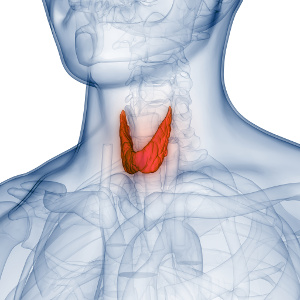 Hashimoto’s thyroiditis is the most common underlying cause of hypothyroidism. It is characterized by extreme fatigue, weight gain, and a number of other symptoms. Hashimoto’s is an autoimmune condition where antibodies attack the thyroid gland. Many people who get treatment for their disease don’t improve, on the contrary. According to a meta-analysis published in Medicine, however, selenium supplementation appears to be able to reduce the autoimmune reactions and the body’s production of the different antibodies. Selenium helps control the thyroid function but also serves as an antioxidant that protects the thyroid gland against oxidative stress.
Hashimoto’s thyroiditis is the most common underlying cause of hypothyroidism. It is characterized by extreme fatigue, weight gain, and a number of other symptoms. Hashimoto’s is an autoimmune condition where antibodies attack the thyroid gland. Many people who get treatment for their disease don’t improve, on the contrary. According to a meta-analysis published in Medicine, however, selenium supplementation appears to be able to reduce the autoimmune reactions and the body’s production of the different antibodies. Selenium helps control the thyroid function but also serves as an antioxidant that protects the thyroid gland against oxidative stress. There are several possible causes of male impotence, and the risk increases with age. Oxidative stress appears to play a role, as this condition contributes to local atherosclerosis, which restricts blood flow to the penis. However, consuming a variety of antioxidants - such as selenium, zinc, vitamins A, C, and E, as well as various carotenoids - may help reduce the risk of impotence, according to a U.S. population study published in Scientific Reports.
There are several possible causes of male impotence, and the risk increases with age. Oxidative stress appears to play a role, as this condition contributes to local atherosclerosis, which restricts blood flow to the penis. However, consuming a variety of antioxidants - such as selenium, zinc, vitamins A, C, and E, as well as various carotenoids - may help reduce the risk of impotence, according to a U.S. population study published in Scientific Reports. Selenium supports a host of different metabolic processes and serves as an antioxidant that protects our cells. According to recent studies, selenium also has anti-ageing properties that protect us against cardiovascular disease, cancer, dementia, and other age-related diseases. According to a review article published in Medical News Today, selenium also helps against impaired immunity and counteracts chronic inflammation, which is typically seen in connection with ageing processes. A Swedish study of healthy seniors has even showed that supplementation with selenium and Q10 has a positive effect on heart function, quality of life, and life expectancy.
Selenium supports a host of different metabolic processes and serves as an antioxidant that protects our cells. According to recent studies, selenium also has anti-ageing properties that protect us against cardiovascular disease, cancer, dementia, and other age-related diseases. According to a review article published in Medical News Today, selenium also helps against impaired immunity and counteracts chronic inflammation, which is typically seen in connection with ageing processes. A Swedish study of healthy seniors has even showed that supplementation with selenium and Q10 has a positive effect on heart function, quality of life, and life expectancy.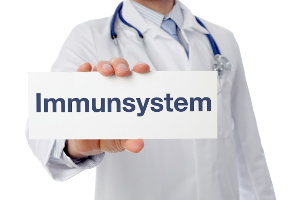 Minerals are involved in countless functions of vital importance to the immune defense. That is why lack of one or several minerals can increase your risk of infections or perhaps trigger unwanted inflammation that can damage healthy tissue. In a new review article that is published in Nutrients, a group of scientists look at magnesium, selenium, zinc, iron, and copper and their role in the immune system. They also look at the fact that vegans, older people, chronically ill, pregnant women, and elite athletes often have nutrient deficiencies that call for supplementation. The agricultural soil in Europe and many other parts of the world is selenium-depleted, which makes it challenging to get enough selenium from our diets. But it is also important not to overdose on minerals. In this article, you can read more about how to optimize your nutrient intake for your immune health.
Minerals are involved in countless functions of vital importance to the immune defense. That is why lack of one or several minerals can increase your risk of infections or perhaps trigger unwanted inflammation that can damage healthy tissue. In a new review article that is published in Nutrients, a group of scientists look at magnesium, selenium, zinc, iron, and copper and their role in the immune system. They also look at the fact that vegans, older people, chronically ill, pregnant women, and elite athletes often have nutrient deficiencies that call for supplementation. The agricultural soil in Europe and many other parts of the world is selenium-depleted, which makes it challenging to get enough selenium from our diets. But it is also important not to overdose on minerals. In this article, you can read more about how to optimize your nutrient intake for your immune health. Kidney stones is a painful and quite common problem. The diet plays a major role and according to a large American population study published in Nutrients, selenium may help prevent the condition. The authors mention that selenium-containing proteins and antioxidants have preventative mechanisms and due to the widespread problems with selenium-depleted farmland, they say that selenium supplementation may be a good way to prevent and manage kidney stones and other pathological changes.
Kidney stones is a painful and quite common problem. The diet plays a major role and according to a large American population study published in Nutrients, selenium may help prevent the condition. The authors mention that selenium-containing proteins and antioxidants have preventative mechanisms and due to the widespread problems with selenium-depleted farmland, they say that selenium supplementation may be a good way to prevent and manage kidney stones and other pathological changes.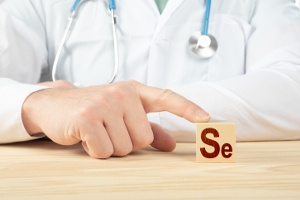 When it comes to COVID-19 and other seasonal virus infections most of the focus is concentrated on vitamin D deficiency. According to a Belgian study, however, lack of selenium and zinc additionally increases the risk of infections, complications, and death, especially among patients who already suffer from chronic diseases. The scientists conclude that supplementation with selenium and zinc may help improve treatments. Selenium and zinc deficiencies are rather common and that is a problem for public health. Even with a healthy diet, it is practically impossible for Europeans to get enough selenium because of the nutrient-depleted farmland. There are also many people with zinc deficiencies due to unhealthy diets, ageing, chronic diseases, and other contributing factors. We must be much more focused on getting enough selenium and zinc, not least for the sake of preventing virus infections and other problems.
When it comes to COVID-19 and other seasonal virus infections most of the focus is concentrated on vitamin D deficiency. According to a Belgian study, however, lack of selenium and zinc additionally increases the risk of infections, complications, and death, especially among patients who already suffer from chronic diseases. The scientists conclude that supplementation with selenium and zinc may help improve treatments. Selenium and zinc deficiencies are rather common and that is a problem for public health. Even with a healthy diet, it is practically impossible for Europeans to get enough selenium because of the nutrient-depleted farmland. There are also many people with zinc deficiencies due to unhealthy diets, ageing, chronic diseases, and other contributing factors. We must be much more focused on getting enough selenium and zinc, not least for the sake of preventing virus infections and other problems.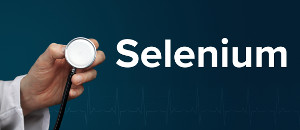 Around one billion people worldwide are believed to lack selenium, mainly due to nutrient-depleted farmland. Selenium deficiency makes us more vulnerable to infections and increases the risk of a virus mutating and becoming more dangerous. This was shown in previous studies of RNA virus that can cause influenza, hepatitis, HIV, and Keshan disease. Coronavirus that causes the common cold and COVID-19 infections also belongs to the group of RNA virus and has a unique ability to mutate. Three new mutated virus types have been found in mink and stand in the way of a future vaccine. Therefore, we are forced to bolster our immune defense, which is designed to attack virus from different angles. Still, even if we eat a healthy diet it can be challenging to get enough selenium, and that is why an increasing number of international researchers now recommend selenium supplements to help fight coronavirus.
Around one billion people worldwide are believed to lack selenium, mainly due to nutrient-depleted farmland. Selenium deficiency makes us more vulnerable to infections and increases the risk of a virus mutating and becoming more dangerous. This was shown in previous studies of RNA virus that can cause influenza, hepatitis, HIV, and Keshan disease. Coronavirus that causes the common cold and COVID-19 infections also belongs to the group of RNA virus and has a unique ability to mutate. Three new mutated virus types have been found in mink and stand in the way of a future vaccine. Therefore, we are forced to bolster our immune defense, which is designed to attack virus from different angles. Still, even if we eat a healthy diet it can be challenging to get enough selenium, and that is why an increasing number of international researchers now recommend selenium supplements to help fight coronavirus.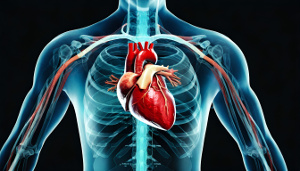
 Congenital heart defects are the most common birth defect on a global scale. The condition is associated with a number of different complications and even comes with an increased risk of infant death. Maternal nutritional status is vital for the development of the fetus, and a team of Chinese scientists has looked closer at how selenium, zinc, and copper affect the development of the disease. They found that a relatively high intake of selenium and zinc lowers the risk of congenital heart defects. Therefore, the scientists call for increased focus on these two minerals during pregnancy and advocate the use of supplements.
Congenital heart defects are the most common birth defect on a global scale. The condition is associated with a number of different complications and even comes with an increased risk of infant death. Maternal nutritional status is vital for the development of the fetus, and a team of Chinese scientists has looked closer at how selenium, zinc, and copper affect the development of the disease. They found that a relatively high intake of selenium and zinc lowers the risk of congenital heart defects. Therefore, the scientists call for increased focus on these two minerals during pregnancy and advocate the use of supplements.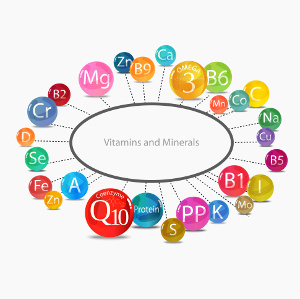 There are around 750,000 people in Denmark who take several medical drugs per day, and the number of users is on the rise. What many people are unaware of is that different drugs can disrupt the body’s ability to absorb or utilize one or several nutrients, especially things like B vitamins, vitamin C, vitamin D, vitamin K2, magnesium, potassium, calcium, zinc, iron, and coenzyme Q10. It is therefore vital to get sufficient amounts of the mentioned nutrients to reduce the risk of adverse effects.
There are around 750,000 people in Denmark who take several medical drugs per day, and the number of users is on the rise. What many people are unaware of is that different drugs can disrupt the body’s ability to absorb or utilize one or several nutrients, especially things like B vitamins, vitamin C, vitamin D, vitamin K2, magnesium, potassium, calcium, zinc, iron, and coenzyme Q10. It is therefore vital to get sufficient amounts of the mentioned nutrients to reduce the risk of adverse effects.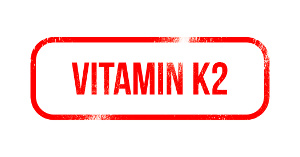 Your birth attest reveals your actual age but your biological age gives a more accurate picture of your health and life expectancy. Our biological age and cardiovascular health are closely connected, with atherosclerosis and arterial stiffness representing a progressive process that eventually leads to the majority of deaths. Nonetheless, you can do a lot yourself by making sure to get sufficient amounts the nutrients that are most vital for good cardiovascular health. In this article, we will look closer at some current studies of vitamin K2, Q10, selenium, and omega-3, all of which are essential nutrients that prevent, each in their own way, atherosclerosis, arterial stiffness, and premature death as a result of having high heart age.
Your birth attest reveals your actual age but your biological age gives a more accurate picture of your health and life expectancy. Our biological age and cardiovascular health are closely connected, with atherosclerosis and arterial stiffness representing a progressive process that eventually leads to the majority of deaths. Nonetheless, you can do a lot yourself by making sure to get sufficient amounts the nutrients that are most vital for good cardiovascular health. In this article, we will look closer at some current studies of vitamin K2, Q10, selenium, and omega-3, all of which are essential nutrients that prevent, each in their own way, atherosclerosis, arterial stiffness, and premature death as a result of having high heart age. During pregnancy, the unborn child needs different nutrients for proper development of its brain and nervous system. Even if the mother eats a balanced diet, it can be difficult to get enough selenium for a number of reasons. In a new Italian animal study that is published in Nutrients, scientists have looked closer at selenium’s role during pregnancy and lactation. They observed that even minor selenium deficiencies can have a negative effect on the offspring’s brain development and behavior. This study supports earlier human studies showing how vital it is for the mother to get plenty of selenium during pregnancy and breastfeeding.
During pregnancy, the unborn child needs different nutrients for proper development of its brain and nervous system. Even if the mother eats a balanced diet, it can be difficult to get enough selenium for a number of reasons. In a new Italian animal study that is published in Nutrients, scientists have looked closer at selenium’s role during pregnancy and lactation. They observed that even minor selenium deficiencies can have a negative effect on the offspring’s brain development and behavior. This study supports earlier human studies showing how vital it is for the mother to get plenty of selenium during pregnancy and breastfeeding. Age-related loss of muscle mass is a natural process and may result in increased feebleness and even disability. Strength training and diet play a major role, and older people need more protein, especially an essential amino acid called leucine. In addition, supplements of vitamin D, omega-3 fatty acids, and probiotics can have a positive impact on muscle mass and muscle strength, according to a review article that is published in Frontiers in Nutrition.
Age-related loss of muscle mass is a natural process and may result in increased feebleness and even disability. Strength training and diet play a major role, and older people need more protein, especially an essential amino acid called leucine. In addition, supplements of vitamin D, omega-3 fatty acids, and probiotics can have a positive impact on muscle mass and muscle strength, according to a review article that is published in Frontiers in Nutrition.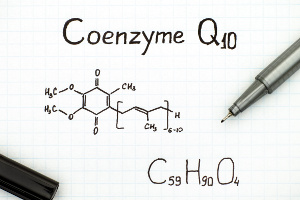 A previous study has demonstrated that daily supplementation with coenzyme Q10 and selenium increases heart muscle strength in seniors and reduces their cardiovascular mortality by over 50 percent. Now, a team of Swedish and Norwegian scientists has found that these two nutrients are also able to slow down the age-related shortening of cellular telomeres, which are attached to the ends of all DNA strands. You can compare telomeres to the small aglets that prevent our shoelaces from fraying and tangling. Like aglets, telomeres protect the DNA strands, but they are exposed to attrition and eventually wear out. The more worn our telomeres become, the more exposed the cellular DNA becomes, until it reaches the point where the cell finally perishes. Q10 and selenium appear to preserve telomere length, thereby keeping us in good health for longer time.
A previous study has demonstrated that daily supplementation with coenzyme Q10 and selenium increases heart muscle strength in seniors and reduces their cardiovascular mortality by over 50 percent. Now, a team of Swedish and Norwegian scientists has found that these two nutrients are also able to slow down the age-related shortening of cellular telomeres, which are attached to the ends of all DNA strands. You can compare telomeres to the small aglets that prevent our shoelaces from fraying and tangling. Like aglets, telomeres protect the DNA strands, but they are exposed to attrition and eventually wear out. The more worn our telomeres become, the more exposed the cellular DNA becomes, until it reaches the point where the cell finally perishes. Q10 and selenium appear to preserve telomere length, thereby keeping us in good health for longer time.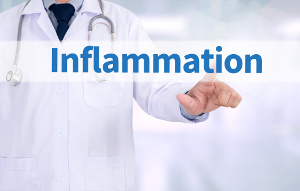
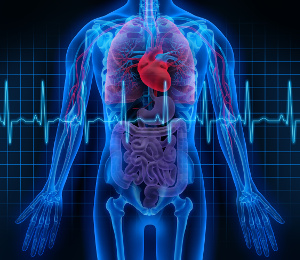 Cardiovascular diseases are widespread and one of the major causes of death. The risk is increased by factors such as ageing, diabetes, and overweight. One of the underlying causes is oxidative stress, which is an imbalance between free radicals and antioxidants. Q10, which is involved in cellular energy turnover, happens to be one of the most powerful antioxidants. According to a review article that is published in the scientific journal Antioxidants, supplementation with Q10 can reduce oxidative stress and cardiovascular mortality. It can also improve quality of life and increase the chances of survival. Generally speaking, Q10 has a huge potential for anyone with a desire to remain healthy, and it is important to choose a supplement with documented quality and bioavailability.
Cardiovascular diseases are widespread and one of the major causes of death. The risk is increased by factors such as ageing, diabetes, and overweight. One of the underlying causes is oxidative stress, which is an imbalance between free radicals and antioxidants. Q10, which is involved in cellular energy turnover, happens to be one of the most powerful antioxidants. According to a review article that is published in the scientific journal Antioxidants, supplementation with Q10 can reduce oxidative stress and cardiovascular mortality. It can also improve quality of life and increase the chances of survival. Generally speaking, Q10 has a huge potential for anyone with a desire to remain healthy, and it is important to choose a supplement with documented quality and bioavailability.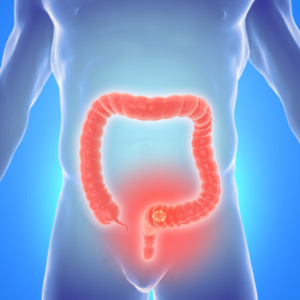 Colorectal cancer is one of the most common cancer types. Although the diet is of huge importance, the understanding of minerals and their interactions and preventative effect is limited. Earlier studies have shown that calcium and selenium have protective roles. It also looks as if having more selenium in the blood can improve the effect of calcium. This was demonstrated in a new Polish study that is published in BMC Nutrition. The scientists point out that there is widespread selenium deficiency in Europe and that supplementation may be needed.
Colorectal cancer is one of the most common cancer types. Although the diet is of huge importance, the understanding of minerals and their interactions and preventative effect is limited. Earlier studies have shown that calcium and selenium have protective roles. It also looks as if having more selenium in the blood can improve the effect of calcium. This was demonstrated in a new Polish study that is published in BMC Nutrition. The scientists point out that there is widespread selenium deficiency in Europe and that supplementation may be needed.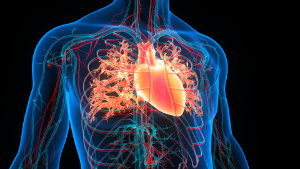 Cardiovascular diseases are the leading cause of death. However, in 2013, Professor Urban Alehagen, a Swedish cardiologist, demonstrated that giving supplements of selenium and Q10 to seniors could strengthen their hearts and reduce their cardiovascular mortality rate by over 50 percent. In follow-ups of his research, it was seen that the two supplements had a long-term effect on lifespan, but there is more to the story. In a whole new study that is published in European Journal of Nutrition, Alehagen manages to show in detail that selenium and Q10 have a positive effect on oxidative stress and inflammation at the same time as improving a number of biomarkers of heart health. He also explains why it can be a challenge to get enough Q10 and selenium through an entire life.
Cardiovascular diseases are the leading cause of death. However, in 2013, Professor Urban Alehagen, a Swedish cardiologist, demonstrated that giving supplements of selenium and Q10 to seniors could strengthen their hearts and reduce their cardiovascular mortality rate by over 50 percent. In follow-ups of his research, it was seen that the two supplements had a long-term effect on lifespan, but there is more to the story. In a whole new study that is published in European Journal of Nutrition, Alehagen manages to show in detail that selenium and Q10 have a positive effect on oxidative stress and inflammation at the same time as improving a number of biomarkers of heart health. He also explains why it can be a challenge to get enough Q10 and selenium through an entire life.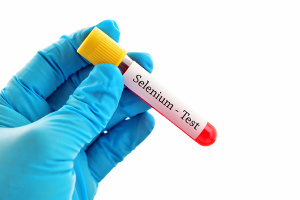
 There is a growing interest among scientists in selenium’s role in the brain and nervous system, and a placebo-controlled study published in Frontiers in Nutrition shows that selenium supplementation is useful as an adjuvant in migraine therapy. The study authors describe that oxidative stress may involved in migraine attacks and mention that selenium has a protective effect due to its role as an antioxidant. Earlier studies have shown that other antioxidants like Q10 and magnesium also have a therapeutic value by way of other mechanisms that may work synergistically.
There is a growing interest among scientists in selenium’s role in the brain and nervous system, and a placebo-controlled study published in Frontiers in Nutrition shows that selenium supplementation is useful as an adjuvant in migraine therapy. The study authors describe that oxidative stress may involved in migraine attacks and mention that selenium has a protective effect due to its role as an antioxidant. Earlier studies have shown that other antioxidants like Q10 and magnesium also have a therapeutic value by way of other mechanisms that may work synergistically.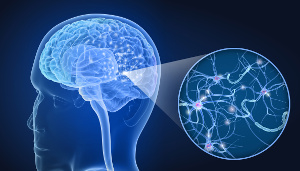 It’s commonly known that physical activity boosts the brain’s ability to form new brain cells – or neurons. Still, the underlying mechanisms have been a mystery to science. A team of Australian scientists, however, has recently discovered that, during exercise, mice produce a selenium-containing protein that helps the brain synthesize new brain cells. The scientists consider this to be a rather fantastic study, and it is assumed that selenium therapy may be used in the future to prevent and treat cognitive decline in people who are unable to carry out physical exercise or in those likely to be selenium-deficient. This is particularly relevant for Alzheimer’s patients and people who have suffered a stroke. It should be added that it can be quite a challenge to get enough selenium from an otherwise balanced diet in our part of the world.
It’s commonly known that physical activity boosts the brain’s ability to form new brain cells – or neurons. Still, the underlying mechanisms have been a mystery to science. A team of Australian scientists, however, has recently discovered that, during exercise, mice produce a selenium-containing protein that helps the brain synthesize new brain cells. The scientists consider this to be a rather fantastic study, and it is assumed that selenium therapy may be used in the future to prevent and treat cognitive decline in people who are unable to carry out physical exercise or in those likely to be selenium-deficient. This is particularly relevant for Alzheimer’s patients and people who have suffered a stroke. It should be added that it can be quite a challenge to get enough selenium from an otherwise balanced diet in our part of the world.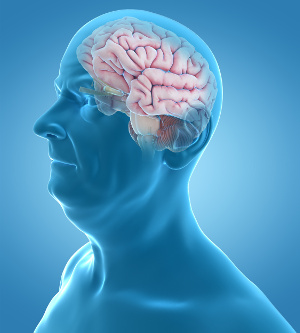 There seems to be a relation between ageing, Alzheimer’s disease, and the widespread problems with selenium deficiency. According to a new study that is published in Antioxidants, scientist have revealed how different selenium-containing proteins can affect pathological processes in the brain that are known to cause Alzheimer’s disease. They believe selenium may have therapeutical potential in the treatment of this disease, which is one of the greatest disease burdens and a leading cause of death among seniors. Selenium also helps in the prevention of the disease, which is extremely important because it is often difficult to diagnose Alzheimer’s disease in its early stages.
There seems to be a relation between ageing, Alzheimer’s disease, and the widespread problems with selenium deficiency. According to a new study that is published in Antioxidants, scientist have revealed how different selenium-containing proteins can affect pathological processes in the brain that are known to cause Alzheimer’s disease. They believe selenium may have therapeutical potential in the treatment of this disease, which is one of the greatest disease burdens and a leading cause of death among seniors. Selenium also helps in the prevention of the disease, which is extremely important because it is often difficult to diagnose Alzheimer’s disease in its early stages.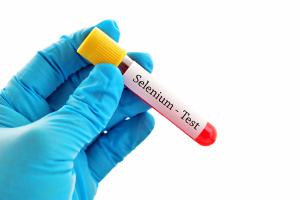
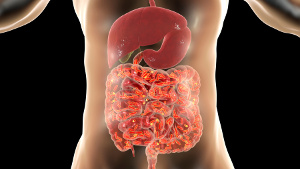 Selenium is an essential trace element of vital importance to our general health. The nutrient is also important for our gut flora, and being selenium-deficient may increase the risk of irritable bowel syndrome, inflammatory gut diseases like Crohn’s disease and ulcerous colitis, and even bowel cancer. Our intestine is also called our “third brain” because both our gut flora and digestion have a significant influence on our mental well-being, according to a review article published in Frontiers in Nutrition. The authors focus on selenium because selenium deficiencies are common in China, Europe, and many other places, and supplementation may be necessary.
Selenium is an essential trace element of vital importance to our general health. The nutrient is also important for our gut flora, and being selenium-deficient may increase the risk of irritable bowel syndrome, inflammatory gut diseases like Crohn’s disease and ulcerous colitis, and even bowel cancer. Our intestine is also called our “third brain” because both our gut flora and digestion have a significant influence on our mental well-being, according to a review article published in Frontiers in Nutrition. The authors focus on selenium because selenium deficiencies are common in China, Europe, and many other places, and supplementation may be necessary. Selenium is a trace element with a number of essential functions. An estimated one billion people worldwide get too little dietary selenium. The problem is mainly a result of nutrient-depleted farmland. Moreover, blood levels of selenium drop drastically in connection with COVID-19 infections, serious illness, and pregnancy because the body has an increased need for the nutrient. Altogether, selenium deficiency increases the risk of complicated COVID-19 infections, autoimmune diseases such as rheumatoid arthritis, Hashimoto’s thyroiditis, preterm delivery, and miscarriage. Supplementation may help optimize blood levels of selenium, which can be relevant for preventing and treating a number of common diseases, according to an article that is published in International Journal of Medical Sciences.
Selenium is a trace element with a number of essential functions. An estimated one billion people worldwide get too little dietary selenium. The problem is mainly a result of nutrient-depleted farmland. Moreover, blood levels of selenium drop drastically in connection with COVID-19 infections, serious illness, and pregnancy because the body has an increased need for the nutrient. Altogether, selenium deficiency increases the risk of complicated COVID-19 infections, autoimmune diseases such as rheumatoid arthritis, Hashimoto’s thyroiditis, preterm delivery, and miscarriage. Supplementation may help optimize blood levels of selenium, which can be relevant for preventing and treating a number of common diseases, according to an article that is published in International Journal of Medical Sciences.
 Cataracts is one of the leading causes of vision impairment and blindness. The risk is increased by old age and diabetes. According to a new study that is published in Frontiers in Nutrition, a relatively high selenium intake can protect against the disease. The scientists mention that because of selenium’s unique antioxidant properties this nutrient protects the cells in the eye and in other places against free radical damage and oxidative stress.
Cataracts is one of the leading causes of vision impairment and blindness. The risk is increased by old age and diabetes. According to a new study that is published in Frontiers in Nutrition, a relatively high selenium intake can protect against the disease. The scientists mention that because of selenium’s unique antioxidant properties this nutrient protects the cells in the eye and in other places against free radical damage and oxidative stress.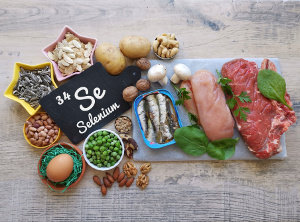
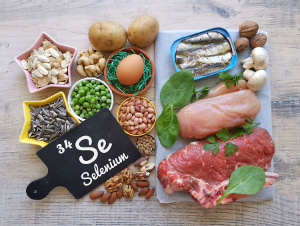 The rate of inflammatory bowel diseases like ulcerous colitis is growing, and diet plays a major role. Even if you eat a healthy diet, it can be a challenge to get enough selenium because of the selenium-depleted soil in our part of the world. Apparently, selenium supplementation can lower the disease activity and improve quality of life in patients with ulcerous colitis.
The rate of inflammatory bowel diseases like ulcerous colitis is growing, and diet plays a major role. Even if you eat a healthy diet, it can be a challenge to get enough selenium because of the selenium-depleted soil in our part of the world. Apparently, selenium supplementation can lower the disease activity and improve quality of life in patients with ulcerous colitis.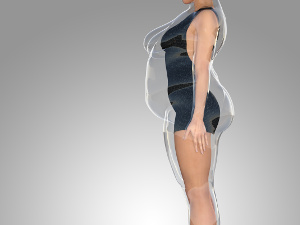 Selenium is involved in a number of different metabolic processes and works as an antioxidant, which protects the heart and cardiovascular system, but it is difficult to get enough of the nutrient from the diet. According to a new American mouse study, selenium supplementation can speed up the metabolic processes and protect against overweight. A Swedish study of seniors published some time ago showed that supplements of selenium and Q10 has a positive effect on quality of life and lifespan.
Selenium is involved in a number of different metabolic processes and works as an antioxidant, which protects the heart and cardiovascular system, but it is difficult to get enough of the nutrient from the diet. According to a new American mouse study, selenium supplementation can speed up the metabolic processes and protect against overweight. A Swedish study of seniors published some time ago showed that supplements of selenium and Q10 has a positive effect on quality of life and lifespan.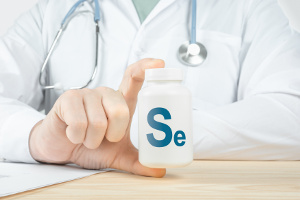 The brain is particularly vulnerable towards oxidative stress and local inflammation that can set the stage for Alzheimer’s disease and other neurological conditions. However, it turns out that certain selenium-containing antioxidants are able to protect the brain neurons against damage. Also, selenium supplements can improve cognitive performance in patients suffering from mild cognitive impairment and Alzheimer’s disease, according to a meta-analysis that is published in Nutrients.
The brain is particularly vulnerable towards oxidative stress and local inflammation that can set the stage for Alzheimer’s disease and other neurological conditions. However, it turns out that certain selenium-containing antioxidants are able to protect the brain neurons against damage. Also, selenium supplements can improve cognitive performance in patients suffering from mild cognitive impairment and Alzheimer’s disease, according to a meta-analysis that is published in Nutrients.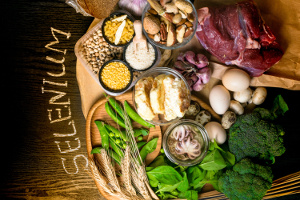 Cancer has become one of the leading causes of death, with rates going up every year. The diet plays a major role and there is a lot of focus on selenium as an anti-cancer agent – both in the form of selenium-enriched functional foods and selenium supplements. Around one billion people worldwide are believed to lack selenium. According to a review article that is published in Foods, however, taking a daily supplement of 100-200 micrograms of selenium yeast can prevent deficiency and reduce some of the most common cancers by fifty percent.
Cancer has become one of the leading causes of death, with rates going up every year. The diet plays a major role and there is a lot of focus on selenium as an anti-cancer agent – both in the form of selenium-enriched functional foods and selenium supplements. Around one billion people worldwide are believed to lack selenium. According to a review article that is published in Foods, however, taking a daily supplement of 100-200 micrograms of selenium yeast can prevent deficiency and reduce some of the most common cancers by fifty percent.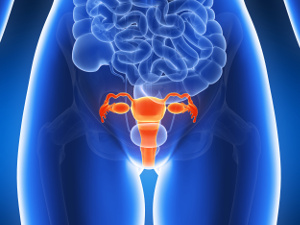 Selenium is an essential trace element that affects the rate and development of several cancer types, including cervical cancer that is one of the most common cancer forms. Cervical cancer is often treated with a combination of radiation and chemotherapy and the side effects are known to affect the bone marrow and the formation of blood platelets and blood cells. However, supplementation with selenium yeast appears to counteract these adverse effects without interfering with the treatment, according to a study that is published in Frontiers in Nutrition.
Selenium is an essential trace element that affects the rate and development of several cancer types, including cervical cancer that is one of the most common cancer forms. Cervical cancer is often treated with a combination of radiation and chemotherapy and the side effects are known to affect the bone marrow and the formation of blood platelets and blood cells. However, supplementation with selenium yeast appears to counteract these adverse effects without interfering with the treatment, according to a study that is published in Frontiers in Nutrition.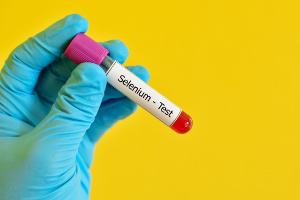 The corona crisis has shed new light on the importance of having a strong immune defense, one that protects us against virus infections in the long run. Selenium plays a vital role for a number of different reasons but, unfortunately, there is widespread deficiency which increases the risk of infections and related complications. In a new review article that is published in International Journal of Molecular Sciences, the authors look closer at selenium’s role in connection with different types of virus infections such as influenza, HIV, and hepatitis with particular focus on COVID-19. The purpose of their article is to inform about new nutritional strategies that may contribute to a strong and well-functioning immune defense – mainly when it comes to COVID-19 and virus types that tend to mutate all the time.
The corona crisis has shed new light on the importance of having a strong immune defense, one that protects us against virus infections in the long run. Selenium plays a vital role for a number of different reasons but, unfortunately, there is widespread deficiency which increases the risk of infections and related complications. In a new review article that is published in International Journal of Molecular Sciences, the authors look closer at selenium’s role in connection with different types of virus infections such as influenza, HIV, and hepatitis with particular focus on COVID-19. The purpose of their article is to inform about new nutritional strategies that may contribute to a strong and well-functioning immune defense – mainly when it comes to COVID-19 and virus types that tend to mutate all the time.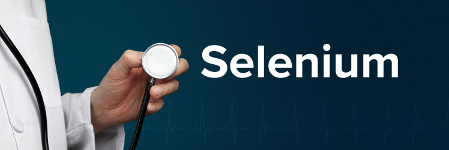
 Selenium has an overlooked role in sperm quality and healthy pregnancies. A team of scientists from Romania has looked closer at blood levels of different selenium-containing antioxidants and found that low levels are significantly correlated with poor sperm quality. The scientists also explain that lack of selenium increases the risk of pregnancy-related complications, miscarriage, and preterm delivery. Both selenium deficiencies and infertility are common problems so selenium supplementation may be worth considering. For decades, Danish farmers have added selenium to animal fodder as a way of improving the fertility and general health of the animals.
Selenium has an overlooked role in sperm quality and healthy pregnancies. A team of scientists from Romania has looked closer at blood levels of different selenium-containing antioxidants and found that low levels are significantly correlated with poor sperm quality. The scientists also explain that lack of selenium increases the risk of pregnancy-related complications, miscarriage, and preterm delivery. Both selenium deficiencies and infertility are common problems so selenium supplementation may be worth considering. For decades, Danish farmers have added selenium to animal fodder as a way of improving the fertility and general health of the animals.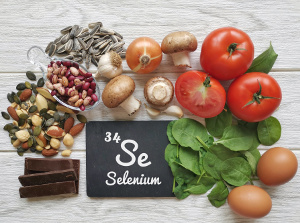 Selenium supports a number of different selenium-dependent proteins that are important for our energy turnover, metabolism, immune defense, fertility, and antioxidant protection. Selenium also has a special affinity for mercury and is therefore able to bind to this heavy metal and counteract its harmful impact on the brain, the nervous system, and other tissues. Once selenium is bound to mercury, however, the different selenoproteins are no longer able to use it. We are all exposed to a certain amount of mercury and that may result in a borderline deficiency of selenium. The problem is that other factors weigh in such as selenium-depleted crops because of the lack of selenium in the European farmland. What is important to realize is that mercury toxicity is insidious and certain fish such as predatory fish and whales in the upper part of the food chain contain large concentrations of mercury. However, therapeutic doses of selenium can prevent the toxic effect of the heavy metal, according to a new review article published in Scientific Research.
Selenium supports a number of different selenium-dependent proteins that are important for our energy turnover, metabolism, immune defense, fertility, and antioxidant protection. Selenium also has a special affinity for mercury and is therefore able to bind to this heavy metal and counteract its harmful impact on the brain, the nervous system, and other tissues. Once selenium is bound to mercury, however, the different selenoproteins are no longer able to use it. We are all exposed to a certain amount of mercury and that may result in a borderline deficiency of selenium. The problem is that other factors weigh in such as selenium-depleted crops because of the lack of selenium in the European farmland. What is important to realize is that mercury toxicity is insidious and certain fish such as predatory fish and whales in the upper part of the food chain contain large concentrations of mercury. However, therapeutic doses of selenium can prevent the toxic effect of the heavy metal, according to a new review article published in Scientific Research.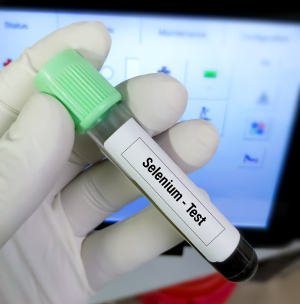 Over the past decades, numerous studies have linked low selenium levels in the blood to cardiovascular disease, cancer, increased risk of infection, thyroid disorders, and several other diseases. Due to the widespread problems with selenium deficiency, supplementation with this nutrient is of potential value to our general health. In a review article that is published in Oxidative Medicine and Cellular Longevity, the authors look at selenium’s role in connection with a host of different diseases and metabolic disorders.
Over the past decades, numerous studies have linked low selenium levels in the blood to cardiovascular disease, cancer, increased risk of infection, thyroid disorders, and several other diseases. Due to the widespread problems with selenium deficiency, supplementation with this nutrient is of potential value to our general health. In a review article that is published in Oxidative Medicine and Cellular Longevity, the authors look at selenium’s role in connection with a host of different diseases and metabolic disorders.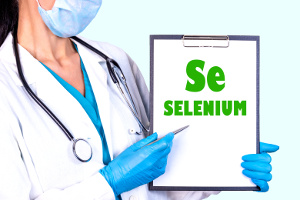 Our nutritional status is of vital importance to our health and our ability to handle infections. Selenium has several functions in the immune system, including its role as an antioxidant and in counteracting unwanted inflammation. Selenium is also able to prevent virus from mutating and becoming more virulent or creating new waves of disease. A team of Chinese scientists have reviewed a number of studies of selenium and its key role in the defense against influenza, HIV, and other types of RNA virus. They have found, among other things, that the risk of contracting a COVID-19 infection is 10 times lower in areas where the soil is rich in selenium. Therefore, it is a huge problem that selenium deficiency due to selenium-depleted farmland is so widespread in Europe, China, Africa, and many other places.
Our nutritional status is of vital importance to our health and our ability to handle infections. Selenium has several functions in the immune system, including its role as an antioxidant and in counteracting unwanted inflammation. Selenium is also able to prevent virus from mutating and becoming more virulent or creating new waves of disease. A team of Chinese scientists have reviewed a number of studies of selenium and its key role in the defense against influenza, HIV, and other types of RNA virus. They have found, among other things, that the risk of contracting a COVID-19 infection is 10 times lower in areas where the soil is rich in selenium. Therefore, it is a huge problem that selenium deficiency due to selenium-depleted farmland is so widespread in Europe, China, Africa, and many other places.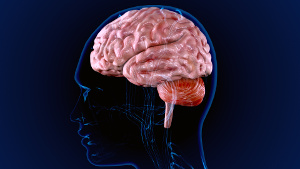 Brain cancer is associated with physical and cognitive disruptions, and many patients die within a few years. Compared with other cancers, the development of brain cancer is more complex and there has been focus on underlying causes such as head traumas, allergies, and electromagnetic radiation from cell phones, transmission towers, etc. Scientists have also looked at vitamins and brain health, whereas minerals have been ignored. Now, a team of Chinese scientists have conducted a large population study and found that higher intake of calcium, magnesium, iron, zinc, and copper is linked to a reduced risk of different types of brain cancer (gliomas). Apparently, selenium also has a protective effect.
Brain cancer is associated with physical and cognitive disruptions, and many patients die within a few years. Compared with other cancers, the development of brain cancer is more complex and there has been focus on underlying causes such as head traumas, allergies, and electromagnetic radiation from cell phones, transmission towers, etc. Scientists have also looked at vitamins and brain health, whereas minerals have been ignored. Now, a team of Chinese scientists have conducted a large population study and found that higher intake of calcium, magnesium, iron, zinc, and copper is linked to a reduced risk of different types of brain cancer (gliomas). Apparently, selenium also has a protective effect. The condition of our skin means a lot to our appearance and health, and being deficient in one or several nutrients can cause premature skin ageing. Also, things like poor wound healing, acne, herpes infections, yeast infections, eczema, psoriasis, and other skin disorders may occur. In a review article published in Medicina, scientists have looked at the role of vitamins A, C, E, D, and biotin plus omega-3 fatty acids in skin health. Studies suggest that selenium and zinc may also be important for healthy skin and anti-ageing. If you don’t get enough of these nutrients or if you simply have an increased need for them, you may consider taking a supplement.
The condition of our skin means a lot to our appearance and health, and being deficient in one or several nutrients can cause premature skin ageing. Also, things like poor wound healing, acne, herpes infections, yeast infections, eczema, psoriasis, and other skin disorders may occur. In a review article published in Medicina, scientists have looked at the role of vitamins A, C, E, D, and biotin plus omega-3 fatty acids in skin health. Studies suggest that selenium and zinc may also be important for healthy skin and anti-ageing. If you don’t get enough of these nutrients or if you simply have an increased need for them, you may consider taking a supplement.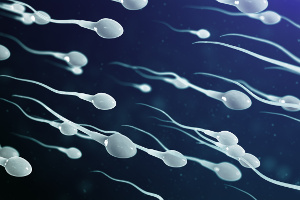 Poor sperm quality, which is a bit of a taboo, is one of the main causes of involuntary infertility. Evidence suggests that Western diets can impair sperm quality, whereas the Mediterranean diet does the opposite. Vegan diets are somewhat controversial, according to a review article published in International Journal of Molecular Sciences. Previous research has shown that supplementation with selenium, zinc, fish oil, and coenzyme Q10 can improve sperm cell quality.
Poor sperm quality, which is a bit of a taboo, is one of the main causes of involuntary infertility. Evidence suggests that Western diets can impair sperm quality, whereas the Mediterranean diet does the opposite. Vegan diets are somewhat controversial, according to a review article published in International Journal of Molecular Sciences. Previous research has shown that supplementation with selenium, zinc, fish oil, and coenzyme Q10 can improve sperm cell quality. Regular sport is good for you, whereas arduous training and high-performance sport can result in physical injuries, infections, chronic inflammation, and serious diseases due to oxidative stress. This phenomenon occurs as a result of the increased energy turnover, which produces an excess of free radicals that cause damage to cells and tissues. Oxidative stress is also associated with impaired performance, poor restitution, and faster ageing. Our only natural defense against free radicals is the presence of antioxidants, and it is especially things like vitamin C, vitamin E, selenium, zinc, Q10, omega-3 fatty acids, and turmeric that protect against oxidative damage and improve recovery time. According to a review article published in Nutrients, supplements with the right doses of different nutrients can also help boost your physical and mental performance.
Regular sport is good for you, whereas arduous training and high-performance sport can result in physical injuries, infections, chronic inflammation, and serious diseases due to oxidative stress. This phenomenon occurs as a result of the increased energy turnover, which produces an excess of free radicals that cause damage to cells and tissues. Oxidative stress is also associated with impaired performance, poor restitution, and faster ageing. Our only natural defense against free radicals is the presence of antioxidants, and it is especially things like vitamin C, vitamin E, selenium, zinc, Q10, omega-3 fatty acids, and turmeric that protect against oxidative damage and improve recovery time. According to a review article published in Nutrients, supplements with the right doses of different nutrients can also help boost your physical and mental performance.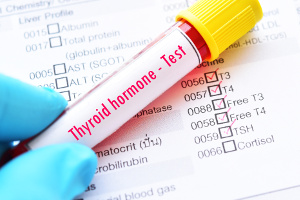
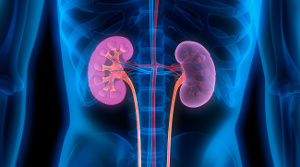 The kidneys cleanse our blood. Well-functioning kidneys are vital for the circulatory system and good health in general. Normal functioning of cells, including kidney cells, hinges on a host of different selenium-containing proteins and coenzyme Q10. Studies show that older people in many parts of the world, Europe included, have deficiencies of both substances. Therefore, a team of Swedish scientists conducted a study where they looked at selenium status and kidney function in a group of seniors. They gave selenium yeast and coenzyme Q10 or placebo to the participants for a period of four years. The results showed that the supplemented group as compared with the placebo group had improved kidney function according to several parameters. The positive effect on cellular energy metabolism, inflammation, and oxidative stress was attributed to the two supplements. The study is published in the science journal Nutrients.
The kidneys cleanse our blood. Well-functioning kidneys are vital for the circulatory system and good health in general. Normal functioning of cells, including kidney cells, hinges on a host of different selenium-containing proteins and coenzyme Q10. Studies show that older people in many parts of the world, Europe included, have deficiencies of both substances. Therefore, a team of Swedish scientists conducted a study where they looked at selenium status and kidney function in a group of seniors. They gave selenium yeast and coenzyme Q10 or placebo to the participants for a period of four years. The results showed that the supplemented group as compared with the placebo group had improved kidney function according to several parameters. The positive effect on cellular energy metabolism, inflammation, and oxidative stress was attributed to the two supplements. The study is published in the science journal Nutrients.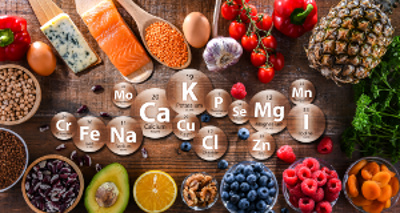
 Fish contains vitamin D, omega-3 fatty acids, selenium, and iodine, all of which are important for the fetus’ brain and development. However, fish also contains mercury and that discourages many pregnant women from eating fish. According to a new study that is published in NeuroToxicology, eating fish during pregnancy is actually not harmful at all, on the contrary, and the scientists behind the study argue that the precautionary guidelines need to be revised. Apparently, the selenium content in fish and seafood determines if mercury is dangerous or not.
Fish contains vitamin D, omega-3 fatty acids, selenium, and iodine, all of which are important for the fetus’ brain and development. However, fish also contains mercury and that discourages many pregnant women from eating fish. According to a new study that is published in NeuroToxicology, eating fish during pregnancy is actually not harmful at all, on the contrary, and the scientists behind the study argue that the precautionary guidelines need to be revised. Apparently, the selenium content in fish and seafood determines if mercury is dangerous or not. Selenium is an essential trace element that supports a host of different proteins and antioxidants that are important for pregnancy. According to a new Norwegian population study that is published in the science journal Nutrients, lack of selenium during pregnancy may stunt the growth of the fetus and result in low birth weight. This may have consequences for the child’s growth, cognitive skills, and health. Selenium deficiencies are rather common in Norway and the rest of Europe and that is a problem.
Selenium is an essential trace element that supports a host of different proteins and antioxidants that are important for pregnancy. According to a new Norwegian population study that is published in the science journal Nutrients, lack of selenium during pregnancy may stunt the growth of the fetus and result in low birth weight. This may have consequences for the child’s growth, cognitive skills, and health. Selenium deficiencies are rather common in Norway and the rest of Europe and that is a problem. Selenium is a trace element that supports well over 25 different selenoproteins, which are important for our energy turnover, blood sugar balance, metabolism, cell protection, and a host of other essential functions. A group of scientists from Rutgers University in New Jersey, USA, has just uncovered the mechanisms involved in getting selenium into the “engine room” of the cells, from where it is metabolized into the different selenoproteins. According to the scientists, this new insight into the metabolism of selenium may lead to new therapies that can treat a variety of diseases such as diabetes, metabolic disorders, and cancer.
Selenium is a trace element that supports well over 25 different selenoproteins, which are important for our energy turnover, blood sugar balance, metabolism, cell protection, and a host of other essential functions. A group of scientists from Rutgers University in New Jersey, USA, has just uncovered the mechanisms involved in getting selenium into the “engine room” of the cells, from where it is metabolized into the different selenoproteins. According to the scientists, this new insight into the metabolism of selenium may lead to new therapies that can treat a variety of diseases such as diabetes, metabolic disorders, and cancer.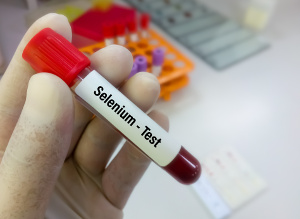 Both physical traumas and critical illnesses are associated with inflammation and oxidative stress where free radicals can cause potentially life-threatening damage to cells and tissues. Traumas are estimated to be the cause of one in ten deaths. New research suggests that early intervention with selenium may shorten the hospital stay including the days spent in intensive care and reduce total mortality. This was shown in a study published in Frontiers in Nutrition where the researchers looked closer at selenium’s unique antioxidant properties and anti-inflammatory effect.
Both physical traumas and critical illnesses are associated with inflammation and oxidative stress where free radicals can cause potentially life-threatening damage to cells and tissues. Traumas are estimated to be the cause of one in ten deaths. New research suggests that early intervention with selenium may shorten the hospital stay including the days spent in intensive care and reduce total mortality. This was shown in a study published in Frontiers in Nutrition where the researchers looked closer at selenium’s unique antioxidant properties and anti-inflammatory effect. Plant-based vegan diets have become increasingly popular among young adults and they even introduce these diets to their children. It is common knowledge that vegan diets lack vitamin B12, which is why many vegans take a supplement. However, a sizeable number of vegans also lack iodine, iron, zinc, and selenium. Most studies have looked at adults but it appears that children on vegan diets also risk metabolic changes, and they have lower blood levels of vitamins A and D compared with children on normal diets. This was demonstrated in a new study that is published in the esteemed international science magazine, EMBO Molecular Medicine.
Plant-based vegan diets have become increasingly popular among young adults and they even introduce these diets to their children. It is common knowledge that vegan diets lack vitamin B12, which is why many vegans take a supplement. However, a sizeable number of vegans also lack iodine, iron, zinc, and selenium. Most studies have looked at adults but it appears that children on vegan diets also risk metabolic changes, and they have lower blood levels of vitamins A and D compared with children on normal diets. This was demonstrated in a new study that is published in the esteemed international science magazine, EMBO Molecular Medicine.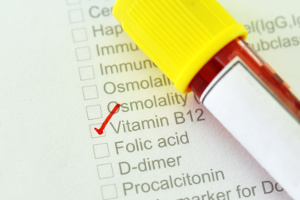 More and more people in the Western world shift to a plant-based diet but may find themselves challenged when it comes to getting enough of certain essential nutrients. A new German study shows that most vegetarians and vegans get enough vitamin B12, provided they take supplements. However, many lack iodine and iron. Also, plant-based diet fails to deliver enough vitamin D, and many lack selenium due to the nutrient-depleted farmland. A lot of deficiency diseases are insidious, which makes it difficult to link them to the diet. It is therefore a good idea for children and adults who are vegetarians or vegans to take relevant supplements.
More and more people in the Western world shift to a plant-based diet but may find themselves challenged when it comes to getting enough of certain essential nutrients. A new German study shows that most vegetarians and vegans get enough vitamin B12, provided they take supplements. However, many lack iodine and iron. Also, plant-based diet fails to deliver enough vitamin D, and many lack selenium due to the nutrient-depleted farmland. A lot of deficiency diseases are insidious, which makes it difficult to link them to the diet. It is therefore a good idea for children and adults who are vegetarians or vegans to take relevant supplements.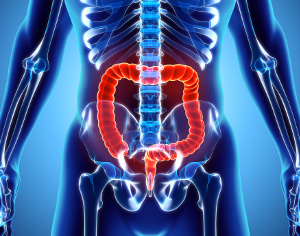 Colorectal cancer is one of the most common cancer forms in Denmark, which is why prevention is so important. According to a new American study that is published in Gastroenterology, increased intake of vitamin D appears to protect against bowel cancer, especially in people younger than 50 years. It even looks as if vitamin D may prevent intestinal polyps that can turn into cancer in some cases. The scientists say that higher intake of vitamin D may be relevant for prevention and may also serve as an inexpensive supplement to screening tests that are merely used for early diagnosis.
Colorectal cancer is one of the most common cancer forms in Denmark, which is why prevention is so important. According to a new American study that is published in Gastroenterology, increased intake of vitamin D appears to protect against bowel cancer, especially in people younger than 50 years. It even looks as if vitamin D may prevent intestinal polyps that can turn into cancer in some cases. The scientists say that higher intake of vitamin D may be relevant for prevention and may also serve as an inexpensive supplement to screening tests that are merely used for early diagnosis.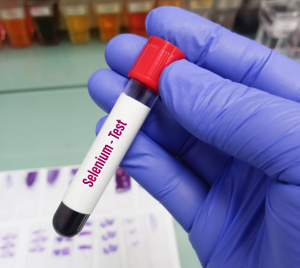
 It is vital to take good care of your eyes throughout life to maintain good vision. Our eyes need a number of different vitamins, minerals, and fatty acids that are important for cellular function and for protecting against oxidative stress. In this article, you can read more about vitamin A, vitamin C, vitamin E, B vitamins, zinc, selenium, omega-3 fatty acids, and Q10 and their vital role in maintaining healthy vision. We will also look at certain antioxidants that are found in eggs, salmon, spinach, broccoli, red bell pepper, and blueberries.
It is vital to take good care of your eyes throughout life to maintain good vision. Our eyes need a number of different vitamins, minerals, and fatty acids that are important for cellular function and for protecting against oxidative stress. In this article, you can read more about vitamin A, vitamin C, vitamin E, B vitamins, zinc, selenium, omega-3 fatty acids, and Q10 and their vital role in maintaining healthy vision. We will also look at certain antioxidants that are found in eggs, salmon, spinach, broccoli, red bell pepper, and blueberries.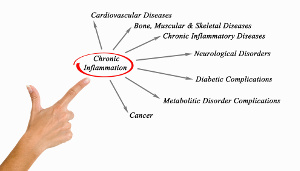 According to WHO, chronic inflammation is the leading cause of death worldwide. Although it is not something that can be felt as such, chronic inflammation sets the stage for a host of different diseases. In a new review article that is published in StatPearls, the authors look closer at why chronic inflammation is so dangerous and how a healthier lifestyle with vitamin D, selenium, magnesium, zinc, and fish oil can help fight the inflammation and prevent the many different diseases and early death that follow in its wake.
According to WHO, chronic inflammation is the leading cause of death worldwide. Although it is not something that can be felt as such, chronic inflammation sets the stage for a host of different diseases. In a new review article that is published in StatPearls, the authors look closer at why chronic inflammation is so dangerous and how a healthier lifestyle with vitamin D, selenium, magnesium, zinc, and fish oil can help fight the inflammation and prevent the many different diseases and early death that follow in its wake.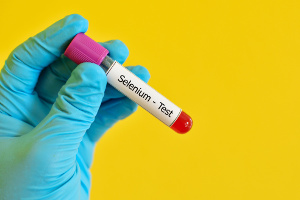
 "After about one week of taking the Q10 supplement I could feel a huge difference," says 23-year old Alan Piccini, who has been suffering from extreme fatigue and muscle aches ever since he was a child.
"After about one week of taking the Q10 supplement I could feel a huge difference," says 23-year old Alan Piccini, who has been suffering from extreme fatigue and muscle aches ever since he was a child. “Taking capsules with co-enzyme Q10 has freed me of the severe side effects of my cholesterol lowering medicine,” Mrs Franken explains.
“Taking capsules with co-enzyme Q10 has freed me of the severe side effects of my cholesterol lowering medicine,” Mrs Franken explains.